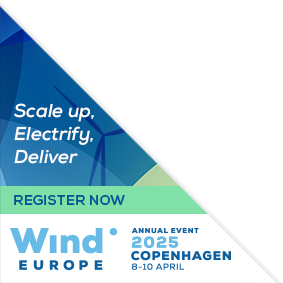We would like to invite you to come and see the posters at our upcoming conference. The posters will showcase a diverse range of research topics, and will give delegates an opportunity to engage with the authors and learn more about their work. Whether you are a seasoned researcher or simply curious about the latest developments in your field, we believe that the posters will offer something of interest to everyone. So please join us at the conference and take advantage of this opportunity to learn and engage with your peers in the academic community. We look forward to seeing you there!

PO072: How Germany reconciles the expansion of offshore wind energy with nature protection
Hans Sohn, Senior Regulatory Affairs Manager, German Offshore Wind Energy Association BWO
Abstract
The German government has decided to significantly accelerate the expansion of offshore wind energy and is set to install at least 30 gigawatts (GW) in the North Sea and Baltic Sea by 2030. By 2045, at least 70 GW of offshore wind are targeted and will significantly support the decarbonisation of the economy and society.
As 70 GW of offshore wind will require a significant portion of sea space in German waters for offshore wind, environmental organisations have voiced their concerns about the potential negative impacts of offshore wind farms on marine ecosystems in the region. They argued that the construction and operation of offshore wind turbines could disturb or harm marine life, including fish, seabirds, and marine mammals.
This presentation therefore seeks to explain the perspective of offshore wind farm developers and operators on two key tools the German government is using to ensure the compatibility of offshore wind expansion with nature and species conservation:
Firstly, it is to deal with the planning of new areas and the establishment of rules for their development via the regularly updated Site Development Plan FEP, a German peculiarity.
Secondly, it will be explained how the developers and operators of offshore wind farms initiated a support platform for the implementation of marine and species protection projects to strengthen both nature protection and social acceptance. In Germany, 5% of the winning bids in offshore wind energy auctions are earmarked for marine conservation projects and for the promotion of environmentally friendly fishing practices, respectively. In addition, notable annual compensation payments over the operating period are earmarked for the national species assistance programme nAHP. The national species assistance programme is intended to support species that are affected by the expansion of renewable energies.











